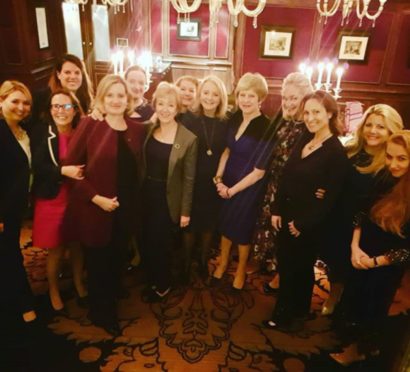
American democracy is in trouble. With barely six weeks to go before polling day on November 3, President Donald Trump has been priming his supporters with warnings the vote will be stolen.
It’s not just Republicans who believe the election could be rigged. Polls suggest Democrats in potential swing states such as Georgia could refuse to accept the result if Joe Biden loses.
America’s democratic crisis has many causes. Decades of voter suppression and gerrymandering have left millions disenfranchised. A deeply partisan media has been become even more polarised as disinformation – a fancy word for “lies” – spreads like digital wildfire on social media. More US voters get their news from self-styled experts on Facebook and Twitter than from CNN and the New York Times.
But mistrust of democracy is not just a problem on the other side of the Atlantic. Earlier this year a study by Cambridge University’s Centre For The Future of Democracy found record levels of discontent with democracy around the world. Discontent was particularly high in Britain, where 61% of people surveyed said they were dissatisfied with democracy.
What can explain this rising dissatisfaction? If we look at the United States and the UK, it’s not hard to see a few possible reasons. Both have first-past-the-post systems that tend to encourage polarisation around two parties. Media is often concentrated in a tiny number of hands. Inequality has risen sharply in recent decades. There is another factor, too: money. In both Britain and America, politics runs on private funding – and, just as in the US, the amount of money in British politics has grown sharply. In the run-up to the 2019 General Election, the Conservatives raised a record £40 million from private donors.
At the same time as declared donations have risen, so too has the influence of anonymous funding. This “dark money” gets into the political system through everything from loopholes in election law and online campaign fundraising to anonymously-funded, agenda-setting pressure groups.
A classic example of dark money in British politics is the Democratic Unionist Party’s extravagant spending during the Brexit referendum. The DUP bought newspaper adverts in England, Facebook campaigns and more worth £425,000. The source of this money was never made public due to donor secrecy laws in place in Northern Ireland, but it was funnelled through an obscure group called the Constitutional Research Group run by former Scottish Conservatives vice-chairman Richard Cook.
The US has long been prey to the corrosive influence of dark money. Since the 1970s, US democracy was effectively bought by a cadre of the super-rich and their surrogates. The sums involved are enormous. The Koch brothers, David and Charles, co-owners of the second-largest private company in the US with interests in coal and petroleum, spent more than $1.5 billion on Republican political causes until David’s death in 2019.
As the amount of conservative money in American politics grew, progressives started giving more money to political causes. Joe Biden raised more than $300m in August alone.
In British politics, too, money talks – but you don’t need anywhere near as much cash to get politicians to listen. “A little bit of money goes a long way,” former Conservative minister Guto Bebb told me in an interview for my latest book. “We are not America. You don’t have to spend half a billion on an election campaign. If you are willing to put a quarter of a million into a think tank, you can get a lot of bang for your buck.”
The numbers are stark. The 2018 US midterm elections were estimated to have cost almost $6bn. In Britain, almost anyone with £50,000 burning a hole in their back pocket can join the Conservative Leader’s Group. In return, Leader’s Group donors receive regular off-the-record dinners, lunches and drinks receptions with the prime minister and cabinet ministers. “The donors are treated like an intelligent fan club. If there is a businessman who wants to have a chat with a future prime minister, this is his opportunity,” said one regular.
The public doesn’t even know who is in the Leader’s Group. David Cameron agreed to release details after it emerged the then prime minister was hosting private parties for funders at the Downing Street flat. But the Tories stopped publishing this information a few years ago, and all previous releases have been scrubbed from the party’s website.
So, what do donors get for their money? For some, it’s status. Spending £90,000 on a game of tennis with Boris Johnson – as Lubov Chernukhin, wife of a former Russian finance minister, did earlier this year – has social cache.
Some donors seek influence and access. Over the past decade, almost one-fifth of leading Conservative donors have received honours, including knighthoods and peerages, after donating to the party. The number of government contracts given to businesses with long-standing ties to the Conservatives during the Covid-19 pandemic has been well-documented.
Other parties rely on donations too, of course. Chris and Colin Weir gave millions to the Scottish National Party after their EuroMillions win in 2011. Labour is largely dependent on trade unions. The super-rich donors who supported Tony Blair are long gone, although some private money has returned since Keir Starmer replaced Jeremy Corbyn as leader earlier this year.
The money behind the Conservatives has been changing, too. After the Brexit vote in June 2016, the Tories’ already narrow funding pool contracted sharply. The pro-European business elite fled the party. About two-thirds of existing donors reduced their contributions, or stopped giving. Dislocated from their traditional support, the Conservatives are now largely dependent on funding from a small number of overwhelmingly pro-Brexit donors. When Boris Johnson became prime minister in June 2019, promising a hard Brexit, donations increased sharply, particularly from corporates and wealthy individuals involved in hedge funds and other speculative finance.
We don’t need to look far to see what happens when a small group of donors have an over-sized political influence. “A federal election in the US is supposed to be decided by 150 million voters, and yet the policy preferences are being determined by literally 20 people, 20 major donors,” says Adav Noti, a US election lawyer with the Campaign Legal Center, in Washington DC.
So, what could be done to stop this happening here? The role of money in British politics could be reduced significantly. If the maximum individual donation was, say, £10,000 a year, parties would be forced to rely on a far wider, and more inclusive, donor base.
However, there is little sign of any willingness for change. The Committee on Standards in Public Life recently announced a long- overdue review of British electoral regulation, but the committee’s remit doesn’t include party funding.
“Political parties have a vested interest in the status quo,” says Labour MP Stephen Kinnock, chair of a parliamentary working group on electoral reform. “They would rather stay with the broken system we have currently, because they know how to maximise their advantage within it.”
Britain, as Kinnock warns, is in the process of being “Americanised”. “Dark money and dodgy data are playing an increasing role in our politics,” he says. “That is very dangerous. We have been complacent about our democracy.”
As the US election is proving, faith in democracy is not a given. Unless we take steps now to end easily bought influence, our politics will look increasingly like America’s – and trust in democracy and its institutions will fall even further.
Peter Geoghegan’s latest book, Democracy For Sale: Dark Money And Dirty Politics, is out now published by Head Of Zeus.

Enjoy the convenience of having The Sunday Post delivered as a digital ePaper straight to your smartphone, tablet or computer.
Subscribe for only £5.49 a month and enjoy all the benefits of the printed paper as a digital replica.
Subscribe © Kirsty Anderson/Herald and Times
© Kirsty Anderson/Herald and Times